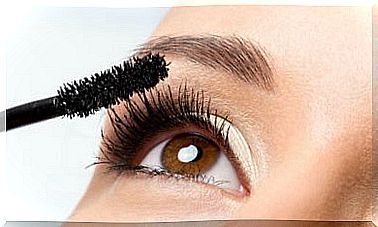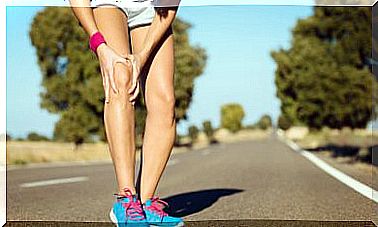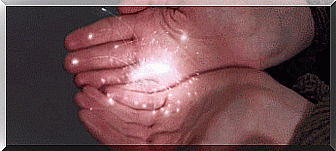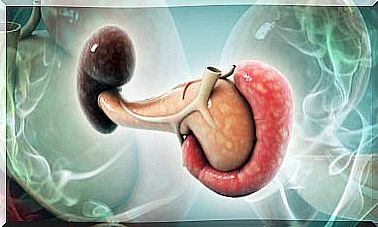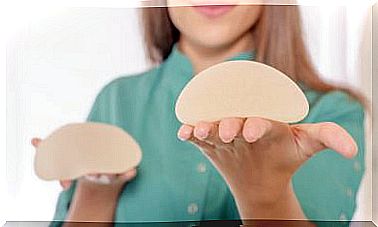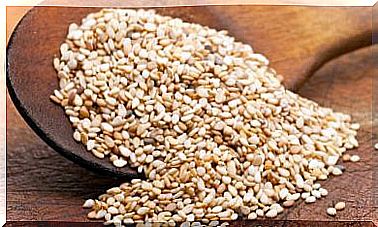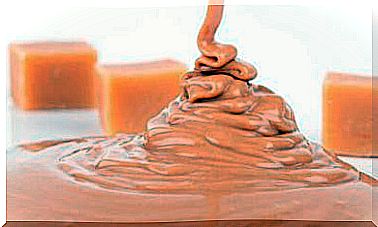How To Deal With Hair Loss While Breastfeeding
Breastfeeding is not the cause of your problems, but a period that all women go through after pregnancy. Here we point out the real culprit and give you the tricks to face it.
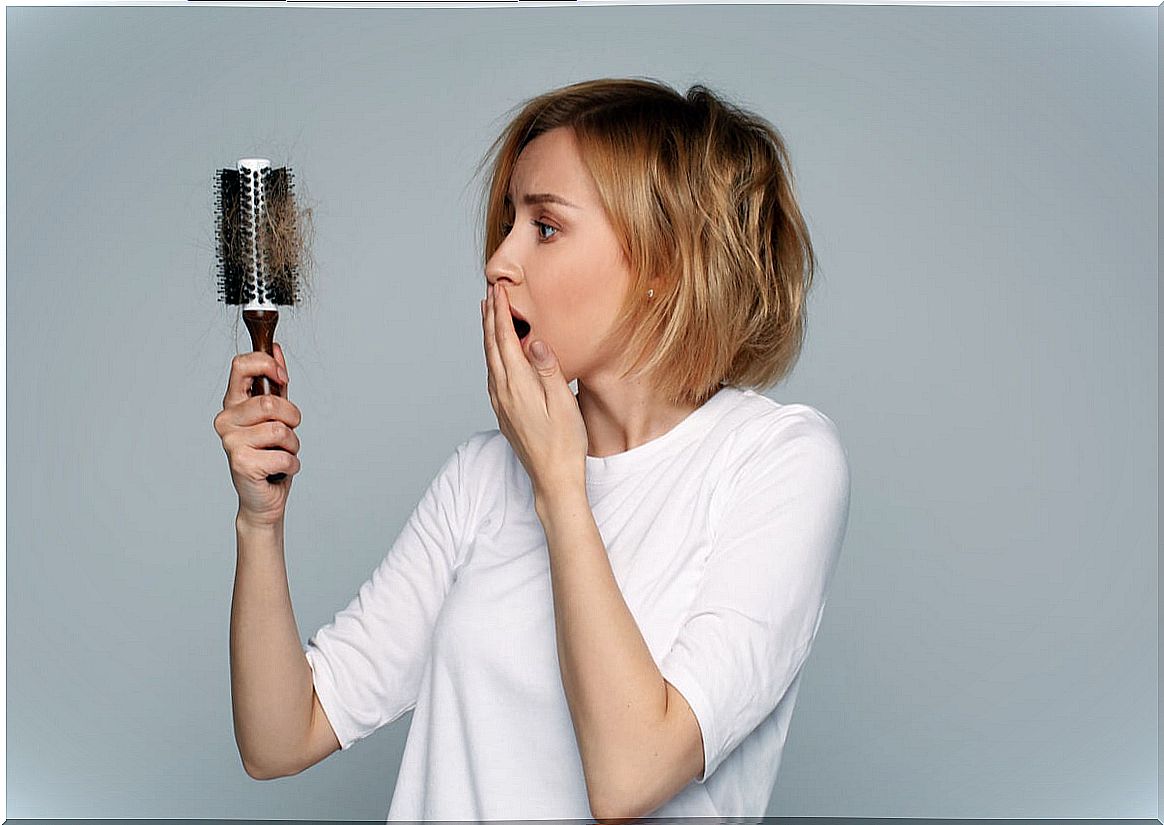
Women may experience hair loss while breastfeeding. But the cause is not specifically breastfeeding, but a process that coincides with breastfeeding. The puerperium or postpartum is the real culprit for the massive hair loss that some women experience.
The normal thing is that between 50 and 100 hairs are lost daily, but in the first 3 months after the baby is born, the amount of hair that falls out is much more excessive. So this phenomenon is a myth that is attributed to breastfeeding.
Causes of hair loss while breastfeeding
It is natural for hair to fall out. In fact, it is part of the natural cycle of the apricots. The growth lasts between 2 and 3 years and is asynchronous, which means that not all hair grows the same or falls out at the same time.
During the cycle, 90% of the hair is growing and between 10% and 15% is in a resting phase. That resting hair falls out and there the new one begins to grow.
So it is normal for hair to fall out. However, during pregnancy and postpartum there is an alteration in the normal cycle. The hormones that the body secretes during pregnancy produce accelerated hair growth, causing it to fall less.
In the postpartum, what is going to happen is that you will lose hair that did not fall out during pregnancy. This phenomenon, known in medicine as telogen effluvium , is normal and reversible.
Tricks to minimize hair loss while breastfeeding
Although you cannot stop hair loss during breastfeeding because it is a normal process, you can minimize it by following some natural tricks to take care of your hair in that period of time.
1. Get vitamin B
Vitamin B6 is a great hair ally. In fact, according to Palafox Virgil, oral administration of vitamin B6 was shown to improve the condition of hair loss. However, it is the specialist who should prescribe these types of supplements.
Remember that vitamin B is a group that includes vitamin B1 (known as thiamine ), B2 (riboflavin), vitamin B3 (niacin), B5 known as pantothenic acid, B6 (pyridoxine) and B7 or biotin . B9 is folic acid and B12 is cobalamin.
The B6, B7 and B12 are the most recognized for hair care. However, all of them fulfill fundamental roles in the body, such as obtaining energy from food.

2. Eat better
To reduce hair loss it is also important that you pay special attention to your diet. Following the previous line and without taking any type of supplements or pills, you can increase your consumption of vitamin B by including it in your diet.
There are a large number of foods that include it. The main one is fish. Among the most recommended are sardines, with 8.9 micrograms of vitamin B12.
Grains (lentils, beans and lima beans) contain between 482 and 444 micrograms of vitamin B9 or folic acid, of which 400 micrograms daily is recommended under normal conditions.
The liver and other visors of the cow, such as the kidney, also contain large amounts of B vitamins. In 100 grams of liver there are 80 micrograms of vitamin B12.
3. Massage your scalp
This should be done properly. To do this, you must know what type of hair you have; whether it is dry or greasy. By massaging you can stimulate the sebaceous glands, which are responsible for keeping the skin lubricated.
If you have oily hair, that is, with an excessive production of sebum, you should massage with the palm of your hand so as not to stimulate the glands. If you have dry hair, massage with your fingertips. Do it in circles and gently for 2 or 3 minutes.
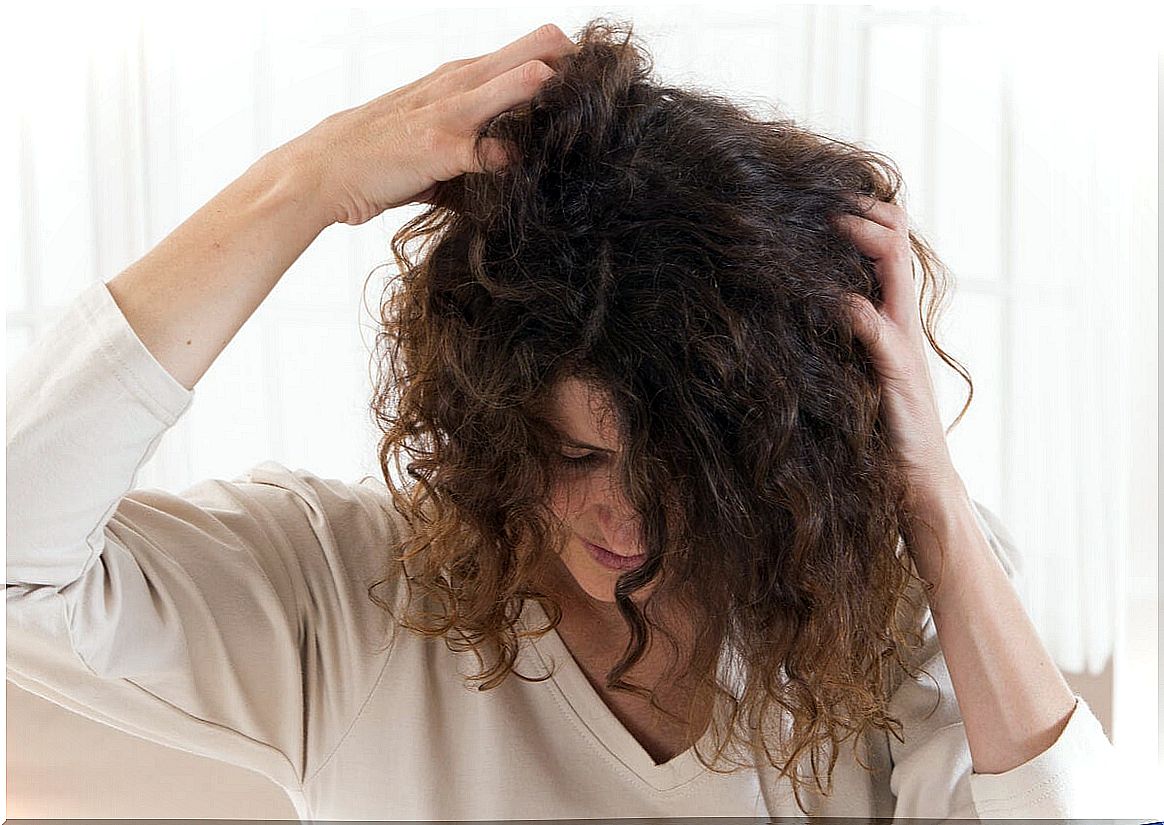
4. What about beauty treatments?
During this period it is recommended to use soft and friendly products with the hair, with a neutral pH. If you want to dye your hair, the ideal is to talk to a specialist about the subject.
Remember that the scalp is going through a delicate phase and dyes, shampoos and conditioners contain chemicals that can impact on hair health.
Hair loss during breastfeeding is temporary
Either way, this should be a passing and normal phase for all postpartum women. Although, if you consider that you have been wearing it for too long and the loss is excessive, you can go to the dermatologist to assess the situation.
